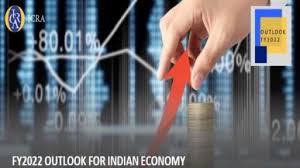New Delhi, Jan 13: Commodity Participants Association of India (CPAI) has urged the government to rationalise commodities transaction taxes in order to boost trading volumes.
In a presentation made to the finance ministry, CPAI also proposed to treat the Commodity Transaction Tax (CTT) as tax paid under section 88E and not as an expense.
“CPAI has submitted a proposal to the government to either remove CTT altogether or reduce it to Rs 500 per crore and treat CTT as tax paid under 88E of the Income Tax Act instead of an expense. This will bring us back to the higher turnover seen in earlier years,” CPAI President Narinder Wadhwa told PTI on Wednesday.
This would be a win-win situation with the government getting higher GST and other revenue, hedging being done on Indian exchanges instead of abroad, saving of foreign exchange, creation of jobs in the financial sector and India becoming a price setter instead of a price taker, he added.
CPAI is the apex pan-India association of participants in commodity exchanges and commodity derivative segments.
Since the introduction of CTT in 2013, the volume in commodity markets have plunged by 60 per cent, while the government collected only Rs 667 crore as revenues.
The association said that revenue foregone for the government by providing CTT towards tax liability under Section 88E would be minimal because the benefit cannot be taken by entities like mutual funds which are tax-exempt, foreign portfolio investors (FPIs), retail and wholesale investors claiming capital gains and entities with loss or inadequate profit.
CTT can be claimed only by entities under business income who even after the set-off will continue to pay effective tax at full slab rates at 34.94 per cent (LLP) and 25.1 per cent for companies, the body said.
If the companies incur loss or inadequate profits, their effective tax rates will be higher and unused CTT cannot be refunded or carried forward to next year, it added.
Apart from CTT, the association also requested the government to rationalise Securities Transaction Tax (STT) and restore section 88E.
“By rationalizing STT and restoring section 88E, India can increase STT revenue collection of at least Rs 7,000 crore a year,” CPAI said.
In 2008, section 88E was withdrawn and STT got treated as an expense instead of a tax, thereby causing a fall in volumes. The removal led to a downward trend in market volume and STT collections crashed 37 per cent from Rs 8,576 crore in 2007-08 to Rs 5,405 crore in 2008-09.
STT is a tax on share market transactions and gets automatically deducted upfront based on a person’s turnover irrespective of profit or loss. CTT is a tax similar to STT, levied on transactions done on the domestic commodity derivatives exchanges. (PTI)


